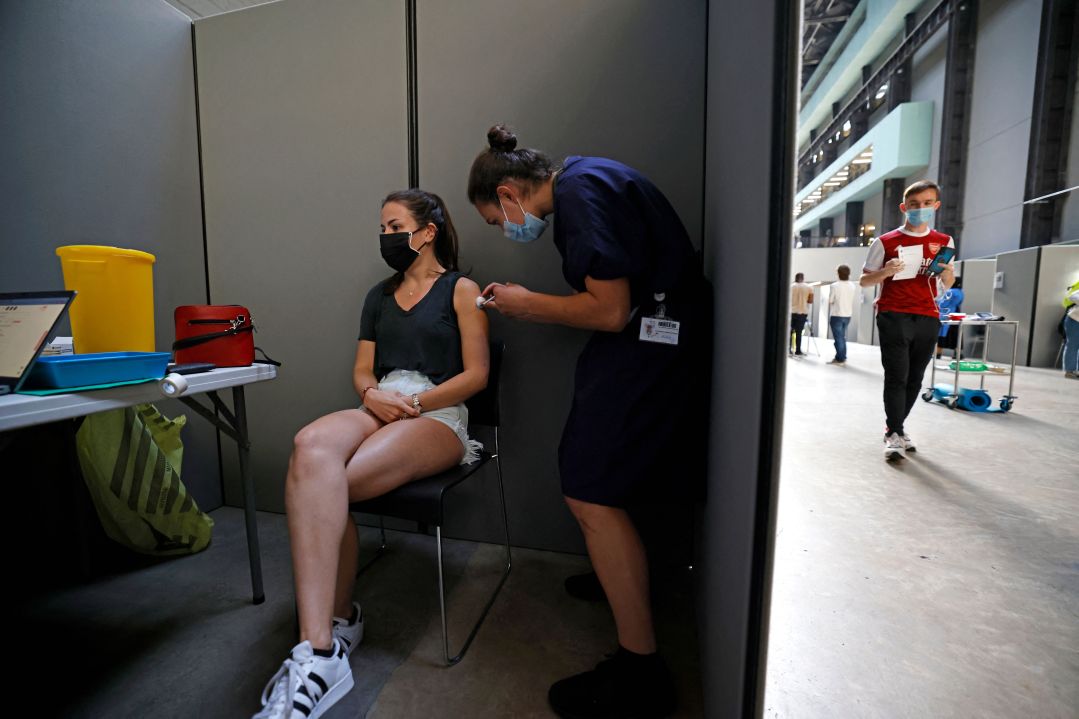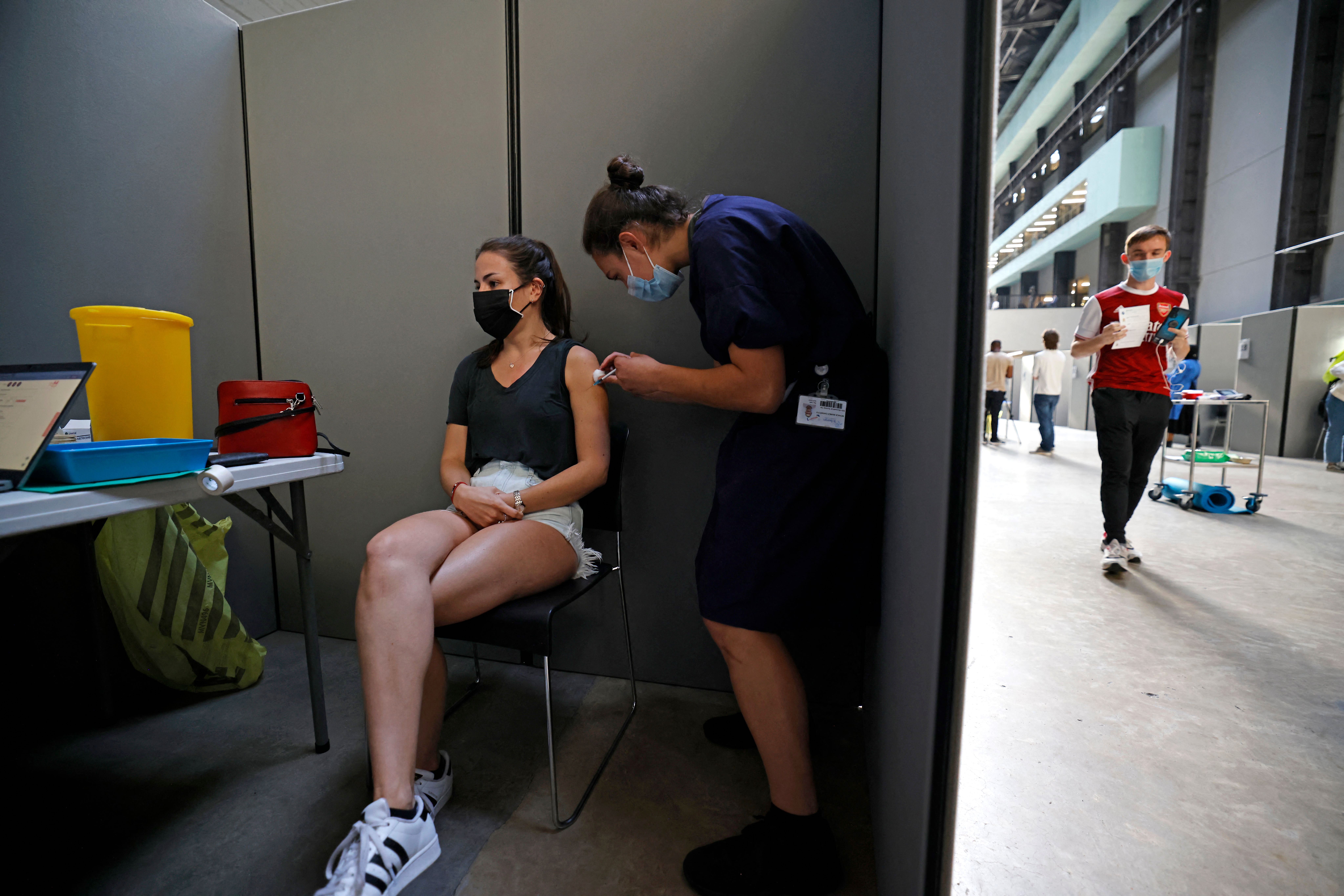Now that the government has announced that it will be compulsory to present a vaccine passport to enter a nightclub or other large venue from September, is it moving towards making double vaccination compulsory in the workplace too?
Yesterday foreign secretary Dominic Raab said that it would be ‘smart policy’ for companies to insist that employees working in the office are double-vaccinated. This morning, transport secretary Grant Shapps denied that the government had any plans to pass legislation to make vaccination compulsory among employees but described it as a ‘good idea’ if companies required it.
The government’s position, then, appears to be: we are not going to make it compulsory, but we are strongly encouraging businesses to ensure their staff are fully vaccinated. That is the position the government held with nightclubs before announcing that they would be legally required to ensure their customers are double-vaccinated.
If the government wants even more of us to be double vaccinated, it should be addressing genuine concerns over side effects
Give it a week or so, then, and don’t be surprised if vaccination passports become compulsory at work. The question is this: why does the government need to use a stick when the carrot has been so successful? As of 29 July, 68.8 per cent of the population has received at least one shot and 55.7 per cent are fully vaccinated (this is a percentage of the whole population, including children who have not yet been offered a jab and maybe never will). We can no longer claim to be the largest country with the highest vaccination rate: Canada has now overtaken us, as has Spain (but only marginally) when it comes to the total vaccines given, but we are very nearly at the top.
Moreover, we are approaching full rates of vaccination among older age groups: 94.1 per cent of the over 50s in England are now fully vaccinated. This age group accounts for 99 per cent of all deaths from Covid. While vaccination rates are lower in younger age groups, immunity through natural infection has made up a lot of the ground: according to the latest ONS survey 91.9 per cent of the adult population now carries antibodies to the virus.
What problem, then, is the government trying to solve by trying to threaten employees with losing their jobs if they refuse to have a jab? Rather than issue threats, why not look at the reasons people give for refusing the vaccine? When the Office for National Statistics looked into this in January and February, it found that 4 per cent of the population had a negative sentiment towards Covid vaccines. Of that 4 per cent, the most common reason cited was fear of side effects (44 per cent) and the second most common reason was the effect on long-term health. Only 8 per cent said they were against vaccines in general, suggesting that the strength of the anti-vaxxer lobby has been hugely overstated.
It is extraordinary that so many people have been willing to be vaccinated given that the most commonly administered vaccine in Britain — the Oxford-AstraZeneca jab — has been found to have a fatal side effect in a very small number of cases. According to the Medicines and Healthcare Products Agency, 71 people have now died of blood clots related to the AstraZeneca vaccine — just one fewer than were killed in the Grenfell Tower disaster. Yet people are rationally weighing up the risks of Covid vs vaccination and still opting for the latter.
If the government wants even more of us to be double vaccinated, it should be addressing genuine concerns over side effects — not threatening people with losing their jobs. (Meanwhile, the NHS continues to deny a choice of vaccine to the over-40s, although I eventually persuaded my GP to allow me to have Pfizer as a second jab, following AstraZeneca, but only after leaping through a great number of hoops.) It cannot be stressed too often that by moving towards compulsory vaccination, the government is going to end up with a very serious political problem on its hands, given the disparity in vaccination rates, and vaccine hesitancy, between ethnic groups. In that same February ONS survey, 44 per cent of black respondents reported negative sentiments towards Covid vaccines compared with 8 per cent of white respondents.
Those figures will no doubt have shifted, but not by enough to eliminate the disparity. Does the government really want to end up with large numbers of black employees losing their jobs? If it wants to avoid the fallout from that, it should put the stick away and try to make the carrot more enticing.








Comments